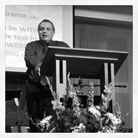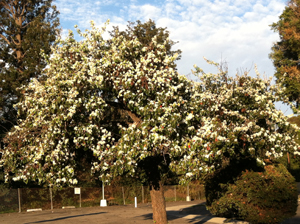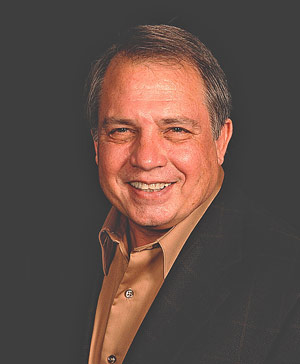“A Piece of My Mind”
February 2014 Newsletter from Donald Shoemaker
Advancing Christian Faith and Values, Defending Religious Liberty for All, Supporting Civility and the Common Good through Preaching, Teaching, Writing, Activism and Reasoned Conversations

Religious
Freedom
Issue
“Congress shall make no law respecting an establishment of religion, or prohibiting the free exercise thereof…”
– 1st Amendment (Our “First Freedom” in the Bill of Rights)
Religious Freedom Day – January 16
Once again it was my privilege to present a proclamation for Religious Freedom Day before the Long Beach City Council.
Here is the full text of my proposal. The actual adopted wording on the one-page proclamation is in italics. I encourage all who read this and cherish its principles to (1) have your own community make a similar proclamation and (2) work for its implementation in your community organizations.
WHEREAS our nation’s founders recognized the importance of religious freedom and secured this liberty in the words of the First Amendment, declaring that “Congress shall make no law respecting an establishment of religion, or prohibiting the free exercise thereof;” and
WHEREAS the Virginia Statute for Religious Freedom, our country’s first legal safeguard for religious liberty, was adopted on January 16, 1786; and
WHEREAS in January of each year since 1994 the President of the United States has issued a Proclamation on the importance of religious liberty, which in 1994 recognized “our government did not create this liberty, but it cannot be too vigilant in securing its blessings;” and
WHEREAS the free exercise of religion has undergirded the social efforts of many Americans, notably Dr. Martin Luther King, Jr., whose birthday on January 15 we commemorate each year; and
WHEREAS the United Nation’s Universal Declaration of Human Rights (Article 18) declares, “Everyone has the right to freedom of thought, conscience and religion” including the right “to manifest his religion or belief in teaching, practice, worship and observance;” and
WHEREAS religious freedom now faces challenges, persecution and coercion, violent and non-violent, at home and around the world; and
WHEREAS our country has embraced a tradition of religious liberty that has prevented religious domination, conflict and persecution and nurtured an environment where religion has flourished and where people have been left free to choose which faith they shall follow or none at all;
NOW, THEREFORE I, Bob Foster, Mayor of Long Beach…on behalf of the City of Long Beach, California, do hereby declare January 16, 2014 to be “Religious Freedom Day” in our community.
We encourage city government, community groups, schools and places of worship to reaffirm their devotion to the principles of religious freedom and educate and reflect on the importance of religious liberty so it may continue secure as part of our nation’s fabric.
We encourage citizens and government to be mindful of the principles of religious liberty in their decisions, attitudes and actions.
On this day let us give thanks for this precious right that has so profoundly shaped and sustained our Nation, and let us strengthen our efforts to share its blessings with oppressed peoples everywhere.
Verbal Statement in Favor of a
Religious Freedom Day Proclamation
The U.S. Commission on International Religious Freedom documents 15 countries as practicing particularly severe violations of religious freedom.
The Commission defines “particularly severe” violations as ones that are “systematic, ongoing, and egregious,” including acts such as torture, prolonged detention without charges, disappearances, or other flagrant denials of the right to life, liberty, or the security of persons.
Sometimes this suffering is due to the oppressive dominance of a single religion. Other times it comes from a secular, anti-religious government. North Korea is by far the worst. But the list also includes:
Burma, China, Eritrea, Iran, Saudi Arabia, Sudan, Uzbekistan, followed by Egypt, Iraq, Nigeria, Pakistan, Tajikistan, Turkmenistan, Vietnam.
And these are just the worst ones. Thankfully, our country is different.
Through the genius of Thomas Jefferson, who wrote the Virginia Statute for Religious Freedom, and other founders who imbedded religious freedom in the Bill of Rights as our “first liberty”, our country is different.
The First Amendment assures that government cannot dominate religion, either by adopting one faith as our official one or by preventing the free exercise of religion by those who embrace a religious faith. Note that the First Amendment bestows the freedom to exercise one’s faith, not just the freedom to hold to a faith.
January 16 is a singular day in the cause of religious liberty, for it was on this day in 1786, 228 years ago, that the Virginia Statute for Religious Freedom was adopted.
I also observe that Martin Luther King’s birthday is tomorrow—January 15. His exercise of his religious principles undergirded the Civil Rights Movement.
So I speak in support of the City of Long Beach designating January 16 as Religious Freedom Day. And I urge us all to be thankful for this precious right that has so profoundly shaped and sustained our Nation. Let us strengthen our efforts to teach and practice this right at home and share its meaning with oppressed peoples everywhere.
Holding steadfast to religious freedom
Guest Commentary by Donald P. Shoemaker
Pastor Emeritus, Grace Community Church of Seal Beach
[This Commentary appeared on January 16, 2014 in the Los Angeles Daily News, Long Beach Press-Telegram and several other newspapers in the greater Los Angeles area. Brackets indicate words edited out of the printed material for space. I believe the deleted sentences under the fourth and fifth freedoms are important. – DPS]
We who live in Southern California know how urban sprawl has pushed wildlife from native environments. Sometimes the wildlife push back and return to areas they once had to themselves. Enlightened policies have created areas that protect wildlife and provided safe accommodation when wildlife venture back to where they once lived.
Take this thinking and consider how government sprawl has encroached into spheres once regarded as religious. Matters like contraception, once a private matter or between individuals and their religion, are now provided by government mandate and religious organizations are told to comply.
In these cases, government has become the urbanizer and religion pushes back and demands accommodation. In fact, the more a government promotes its own utopian social ideals, the more there will be conflicts between the state and religions that have their own visions of the ideal. [This is one reason authoritarian governments suppress and control religion and totalitarian systems try to eradicate it.]
Today is Religious Freedom Day by presidential proclamation. The date recognizes the Virginia Statute for Religious Freedom, our country’s first legal safeguard for religious liberty, adopted on January 16, 1786. [Well worth a read,] this document by Thomas Jefferson ensured freedom of conscience instead of religion imposed by the state.
Our nation has strong debates among people of good will over how and when either a religious or a secular position should prevail. I offer here my own thoughts for a truly libertarian understanding of religious freedom.
First, religious freedom means the freedom to speak your convictions, even on controversial religious or moral matters, without government repercussions. This in turn will have a leavening effect on society’s own sense of tolerance of those who express values outside the current mainstream or the thinking du jour.
Second, it means freedom to persuade others to convert to your faith and the freedom to convert from one faith to another faith or to profess no formal religion at all—all without punishment, retaliation or pressure.
In affirming this, we are a light to nations that ban religious conversions or oppress those not of the majority faith and relegate them, at best, to second-class status.
Third, religious freedom bestows a right to hold any political or governmental office regardless of your religious beliefs. Religious tests are banned by the U.S. Constitution (Article 6, Paragraph 3). But we’ve often seen religion or its moral convictions raised as a political barrier. Remember the dispute over John F. Kennedy’s Catholicism and recent concern over Mitt Romney’s Mormonism.
A fourth freedom is the right not only to believe as you choose but also to practice the moral tenets of your faith. This means doing what faith demands and refusing what others demand when it violates faith’s convictions.
[KEY POINT: This freedom isn’t just for clergy. It extends to laypeople as they carry out their personal and vocational activities.]
Freedom to practice your faith is not unlimited the way freedom to believe is. But once a person establishes that a practice or a prohibition rises from his or her belief system, the burden of proof should shift to the government. No conduct based on religious convictions should be restricted by the government unless it proves a compelling state interest that justifies a limit on religious liberty. This is a vital [and highly relevant principle] in light of the current debate over whether religious organizations opposed to contraception should nonetheless be required to provide that coverage in one form or another.
Finally, religious freedom means government should not tax what is dedicated to God and necessary to the furtherance of faith or mission. This includes houses of worship, land dedicated to religious purposes, hospitals, schools and more. [The U.S. Supreme Court (in Walz v. Tax Commission of the City of New York, 1970) has noted that society gains significant benefit from the presence and services of religious organizations exempt from taxation.]
As we observe Religious Freedom Day, we honor our nation’s legacy of religious independence by upholding our right to exercise our beliefs free from prejudice or persecution.
We also remember that religious liberty is not just an American right. It is a universal human right to be protected here at home and around the globe.
Bible Insight: The Greatest Freedom of All
“You will know the truth, and the truth will set you free.”
“If the Son sets you free, you will be free indeed.” – John 8:32, 36
“Where the Spirit of the Lord is, there is freedom.” – 2 Corinthians 3:17
“It is for freedom that Christ has set us free. Stand firm, then, and do not let yourselves be burdened again by a yoke of slavery.” – Galatians 5:1
In contrast to religionists who would heap burdens and guilt on people, Jesus came with the liberating word, “My yoke is easy and my burden light” (Matthew 11:30). He announced once that he was here “to set at liberty those who are oppressed” (Luke 4:18). How does the work of Jesus for us and in us set us free?
1. He provides forgiveness of sin and subsequent peace with God to those who have broken God’s law (which is all of us).
“Since we have been justified [become right with God] through faith, we have peace with God through our Lord Jesus Christ” (Romans 5:1).
2. He sets us free from the struggle of trying to save ourselves.
“A righteousness from God, apart from law, has been made known… This righteousness from God comes through faith in Jesus Christ to all who believe… For all have sinned and fall short of the glory of God, and are justified freely by his grace through the redemption that came by Christ Jesus” (Romans 3:21-24).
3. He frees us from guilt, lest we wonder if we are truly forgiven or not.
“Who will bring any charge against those whom God has chosen? It is God who justifies” (Romans 8:33).
4. He sets us free to obey God’s will with a new dynamic and perspective.
“What the law was powerless to do in that it was weakened by the sinful nature, God did, by sending his own Son…that the righteous requirements of the law might be fully met in us” (Romans 8:3-4).
5. He sets us free from the judgment of others in matters indifferent to God.
“One man’s faith allows him to eat everything, but another man, whose faith is weak, eats only vegetables*… One man considers one day more sacred than another; another man considers every day alike. Each one should be fully convinced in his own mind… Why do you judge your brother? For we will all stand before God’s judgment seat” (Romans 14:2, 5, 10).
6. sets us free to enjoy life and serve others with the flexibility needed to live differently in diverse situations.
“Though I am free and belong to no man, I make myself a slave to everyone, to win as many as possible… To those not having the law I became like one not having the law (though I am not free from God’s law but am under Christ’s law), so as to win those not having the law. I have become all things to all men so that by all possible means I might save some” (1 Corinthians 9:19, 21-22).
7. His work of redemption touches us body, soul and spirit so that one day we will stand with him completely renewed and ready to live with him forever.
As we struggle with the infirmities of our flesh, we embrace God’s promise: “We ourselves, who have the firstfruits of the Spirit, groan inwardly as we wait eagerly for our adoption as sons, the redemption of our bodies. For in this hope we are saved” (Romans 8:23-24). The Apostle Paul calls this “the glorious freedom of the children of God” (verse 21).
Christian Liberty—seek it, embrace it, cherish it, teach it, protect it, live it, serve others through it, thank God for it.
*This does not refer to those who are “veggies by choice” but to those who are “veggies by law”—those who think this dietary decision is mandated by God. But God’s rule doesn’t work that way, “for the kingdom of God is not a matter of eating and drinking, but of righteousness, peace and joy in the Holy Spirit” (Romans 14:17).
For an interesting and greatly influential presentation of Christian freedom, read Book 3, Section 19 of the Protestant reformer John Calvin’s Institutes of the Christian Religion. Click the site and then download the format you desire (pdf recommended).
www.ccel.org/ccel/calvin/institutes
Don’s Upcoming Ministries

“What Does It Mean to Be ‘Evangelical’?”
Don will speak on this topic as part of the “Religion 101” series sponsored by the South Coast Interfaith Council.
7:00 p.m., Thursday, February 27
LDS Institute of Religion, 6360 E State University Drive, Long Beach
“Ash Wednesday Communion Service”
Grace Community Church of Seal Beach
Wednesday, March 5 at 7:00 p.m.
Promise of New Life

Seeing this tree blossom now reminded me how the early February blossoms on this same tree filled me with emotion 42 years ago!
Mary and I, with our infant daughter, had spent three very wintry weeks in Ohio facing my father’s final illness, death and funeral. As we turned into our neighborhood after a three-day, 2500-mile drive home, these blossoms awaited us, reminding us of the New Life that follows life’s Great Winter.
For past issues and other information, please go to my Website:
www.donaldshoemakerministries.com



